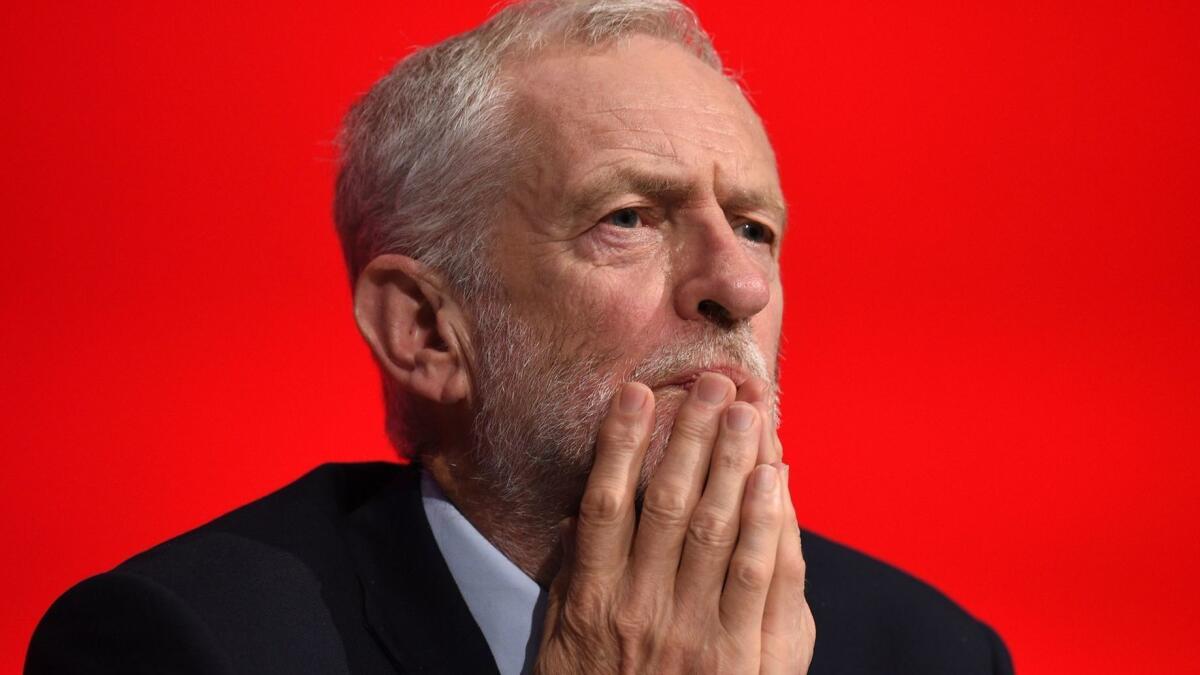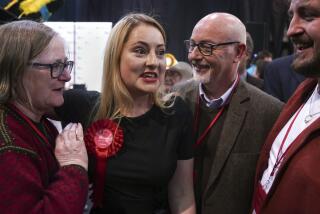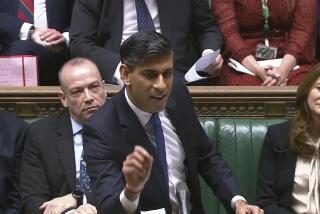Deadlock could lead to second referendum on Brexit

Britain’s opposition Labor Party turned up the heat on Prime Minister Theresa May’s plan for exiting the European Union on Tuesday -- vowing to vote against her proposal and raising the possibility of a second referendum on Brexit.
With just six months left until Britain is due to formally split from the bloc, shadow Brexit secretary Sir Keir Starmer said the country was facing a scenario in which it was being forced to choose between “really bad and even worse” options.
In the event that Parliament could not approve the deal it was presented with, he said, “that is not the end of the debate” and the option to remain inside the EU must still be discussed.
“It’s right that Parliament has the first say,” Starmer said during a speech at the party’s annual conference. “But if we need to break the impasse, our options must include campaigning for a public vote -- and nobody is ruling out ‘remain’ as an option.”
The comments were met with rapturous, sustained applause. Some in the audience rose to their feet.
Outside the conference there was also jubilation that the Labor Party had so publicly endorsed the concept of a second referendum.
“I voted remain,” said Lara Spirit, 21, co-president of the Our Future, Our Choice campaign, which has been calling for a “people’s vote” on the final Brexit deal.
She said that she had grown up with the belief that she would have the opportunity to “love, work and live” in Europe like her parents and grandparents before her, and therefore welcomed the shift in tone from the Labor Party.
“I don’t love the EU but as a young person I do worry when I see what’s happening in Brexit,” she added. “The reaction to Starmer in the hall today was really telling. There is a groundswell of support.”
Britain is due to officially leave the EU on March 29, after decades of membership, but negotiations around what the divorce will look like have been fraught.
Just last week, May held failed talks in Salzburg, Austria, with EU leaders where her counterparts told her that the deal she was proposing was not good enough.
President of the European Council Donald Tusk also humiliatingly posted on Instagram an image of May next to a cake stand with the caption: “A piece of cake, perhaps? Sorry, no cherries.” It was a dig at a long-standing joke in Brussels that Britain is looking to “have its cake and eat it” when it comes to Brexit.
The Irish border issue is proving to be the biggest sticking point, as May is desperate to avoid a hard border between Ireland, which will remain inside the EU, and Northern Ireland, which will remain part of the United Kingdom.
May delivered a hard-hitting speech after returning home last week, demanding EU leaders give Britain respect but admitting that an “impasse” had been reached.
Tuesday’s speech by Starmer comes at a crucial time and Labor leader Jeremy Corbyn was forced to defend accusations that by making it clear his party planned to vote against the government’s deal, he was actually pushing the country further toward a scenario whereby it would leave the EU without any deal on the table.
“We are the opposition party,” Corbyn said in an interview Tuesday. “Our job is to challenge the government.”
But the “no deal” scenario is widely considered to be the worst-case scenario for the country because of the uncertainty, potential job losses and economic upheaval it could cause.
Critics immediately pounced on the Labor Party, claiming it was “unprincipled” and putting a desire to take power ahead of the national interest.
Former UK Independence Party leader Nigel Farage, a key figure in the successful campaign to leave the EU, said the Labor Party was about to engage in a total “betrayal on Brexit.”
Until now, Corbyn has said he respected the 2016 referendum results in which 52% of the country voted to leave the European Union and 48% voted to remain.
Labor has made no secret of the fact that its ultimate aim is to win a general election and take power from the Conservative government, which is relying on Ireland’s Democratic Unionist Party to secure a majority in Parliament.
But it is a big gamble.
There is little appetite for another referendum on the EU since the last one was hard-fought, bruising and left the country bitterly divided.
Even though the Labor Party has a strong base of support among younger voters, who overwhelmingly back remaining, most of its lawmakers hold seats in areas of the country where voters ardently support Brexit.
On Tuesday afternoon delegates at the Labor Party conference voted with a show of hands to leave the option of a second referendum on Brexit open, but stopped short of calling for it directly.
Meanwhile May, on a flight to the U.N.’s general assembly meeting in New York, told reporters that she stood by what she has said all along: “No deal is better than a bad deal.”
EU leaders will meet for another summit on the Brexit issue next month.
Boyle is a special correspondent.
UPDATES:
2:20 p.m.: This article was updated with staff reporting throughout.
This article was orginally posted at 10:15 a.m.
More to Read
Start your day right
Sign up for Essential California for news, features and recommendations from the L.A. Times and beyond in your inbox six days a week.
You may occasionally receive promotional content from the Los Angeles Times.






